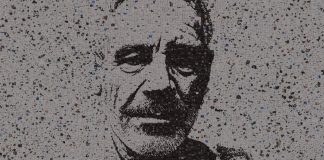The Epstein files and the magnetic fascination with scandal
The Jeffrey Epstein case periodically returns to the public eye with new revelations that promise, but fail, to provide a complete picture. Instead, the same reaction emerges: outrage, distrust of institutions, suspicion of elites and insatiable curiosity. Why does this story continue to captivate us?
“More than a carpenter” | Book review
Josh McDowell, founder of the trans-denominational Christian organisation Campus Crusade for Christ and author of More Than a Carpenter, is known to the public after a decades-long career and having had several volumes published in the field of apologetics.
The “Siret Customs” Paradise
On February 27, 2022, I exchanged my pastor’s suit and tie for an ADRA volunteer vest at the Siret Customs point on the Romanian border.
The dilemma of parents raising their children under pressure
Lucy is an 8-year-old girl who has a range of interests broader than that of an ordinary adult. She is enrolled in an international school, where classes are taught in French by native speakers. Her classmates are children of expats from different cultures, which amuses her nanny, who, when picking her up from school, says that she "took her from the children's UN."
Who are the Taliban and how did they turn Afganistan against itself?
The rise of the Taliban in Afghanistan is the result of a history marked by local political ambitions, regional rivalry, and conflicting geopolitical aspirations, in which the religious element cannot be ignored. Who are the Taliban? What motivates them? Who helps them? What did they do when they ruled over Afghanistan, and what could they do now that they are back in power?
“The old world is gone” | Global economic projections
"Rays of sunshine in the global economy we saw earlier in the year have been fading, and gray days likely lie ahead", says Ayhan Kose, deputy chief economist at the World Bank Group, summing up predictions for the global economy after several overlapping crises ended a nearly three-decade period of economic growth.
(On-line) princes and (real-life) paupers
“Influencers pay double.” With this message, Joe Nichhi, the owner of a small ice cream business, tried to deter self-proclaimed celebrities who would ask him to give them free ice cream in exchange for “exposure” on their social media platforms. But he succeeded more than that. Nicchi has become an international symbol of disgust with “insta-begging.”
The false dilemma: Are there really only two choices?
The false dilemma fallacy presents an issue as if there are only two ways to solve it—often, two opposite ways—when, in fact, there are more ways than that. The conflict between the two ways presented is also false.
Norma Nashed | Poverty made her a mother to thousands of children
Norma Nashed has been running the Restore a Child organisation for more than two decades, helping 4,000 children in ten African countries.
Recognition of dignity
Although the concept of human dignity may appear relatively recent from a historical perspective, the notion of human worth has a long history, as evidenced by accounts in the Book of Genesis, Cicero, and Kant, among others.
God’s providence in times of crisis
Regardless of the form they take, crises give rise to legitimate questions about God's providence: Where is God when we suffer? Has He forgotten us? Is He punishing us? Does He still have things under control?
Aurelius Augustine
Aurelius Augustine (354-430) is known for the stirring Christian experience he described in his Confessions and for the seminal theological thought that has shaped theology to this day.
Hudson Taylor | When the mountains move aside
Hudson Taylor undertook eleven journeys between Europe and China, and his mission prospered. He had one of the most complex and successful visions for evangelism.
Life under the cross and death at the stake
For the chained man, there were now only two options: unreserved submission to the council or condemnation; recantation or death. Outside, the stake was already prepared.
When making friends is not easy | Friendship and shyness
Next to family and health, friends are among the top reasons that make us happy. But what if we are solitary, recluse or shy?


























